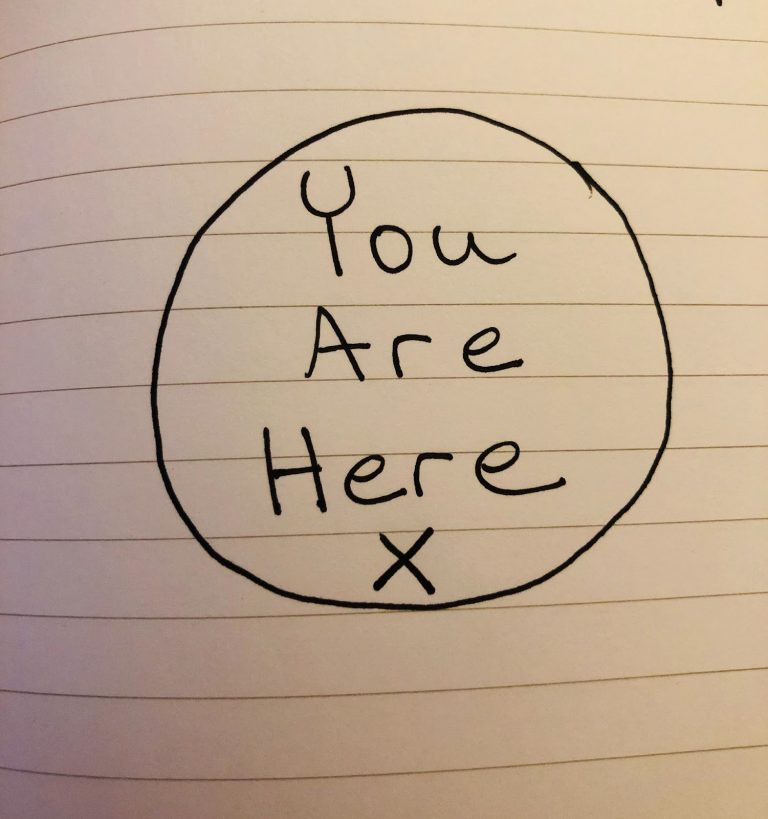COVID-19, time to embrace complexity

As expected, COVID-19 has been spreading exponentially (1). Safety measurements have been oriented by the World Health Organization (2), and many countries have been experiencing lockdowns and shelter-in-place orders, so together we can “flatten the curve” (3,4,5).
It can be challenging to keep up with the worldwide news without feeling ungrounded, but it is important to not lose sight of the complexity of this situation and only focus on the COVID-19 challenges itself.
I tent to see this global quarantine experience as an opportunity to embrace and learn from complexity in order to grow together toward a healthier and more regenerative situation (6,7,8). As I wrote last year about trying to keep a Scenius mindset in times when watching the news feels too unsettling(9).
Unfortunately, too often the word “complex” is used almost as a synonym to “impossible to understand or untangle”. But I encourage you to remember that complexity is part of every molecule of our bodies and cells, complexity is part of our everyday life experience, and maybe we could use this moment as a chance to go beyond the duality narrative of “I can only focus in one thing OR another” kind of thought toward “I can care for this AND for something else too”.
No doubt that finding strategies to deal with the direct challenges of COVID-19 is fundamental, AND at the same time, it is also important to understand that there are other problems and crises that were happening before COVID-19 that got even worse now and we can not lose sight of them in order to the care of our collective health.
This pandemic situation is showing many kinds of vulnerability in our society, that go beyond age and previous comorbidities, and the ones who were most vulnerable before the pandemic are even more vulnerable now. And even in social distancing times, it is important to be aware of them, identify them and use the right tools to deal with them so we can better care for each other.
Examples of more vulnerable groups:
1. Women
For many women even before COVID-19, to stay at home was not safe, so try to imagine what it means to be locked with a violent partner and/or a violent family (10,11).
As reported by the World Health Organization, Violence against women tends to increase during every type of emergency, including epidemics. Women who are displaced, refugees, and living in conflict-affected areas are particularly vulnerable.
While data are scarce, reports from China, the United Kingdom, the United States, and other countries suggest an increase in domestic violence cases since the COVID-19 outbreak (12,13,14).
2. Children
Hundreds of millions of children around the world are likely to face increasing threats to their safety and wellbeing as well – including mistreatment, gender-based violence, exploitation, social exclusion and separation from caregivers (15).
As the virus continues to spread across the world, we are all facing multiple new stresses, including physical and psychological health risks. Through all of that, children are particularly vulnerable (16,17,18).
3. Black people & people of color
Outbreaks create fear, and fear is a key ingredient for racism and xenophobia to thrive. The pandemic has uncovered social and political fractures within communities, with racialized and discriminatory responses to fear, disproportionately affecting marginalized groups (19,20, 21, 22).
In the US, places like New York, Detroit, and New Orleans, black and people of color are dying of COVID-19 at a higher rate than the white population(23). In the UK hospitals indicate that black and asian people are more likely to be badly affected by coronavirus than white people (24).
4. Indigenous people
Besides having less access to health care and other aspects of social injustice, during this pandemic time, the Indigenous populations around the world are even more exposed as any other white people disease that had devastated the indigenous populations in the past like chickenpox (25, 26,27,28, 29).
During this pandemic moment, in Brazil, many indigenous communities, have been dealing with the challenges of their lands being even more exposed to big farmers invasions, tourists and religious missionaries that are coming to their villages even in this quarantine time, exposing the entire village even more (30,31).
5. Refugees
Imagine being someone who has been forced to flee your own home country because of persecution, war or violence. Now, imagine being impossible to go back home, but the borders are also closed.
The International Organization for Migration (IOM) and the UN refugee agency (UNHCR) announced that they are temporarily suspending resettlement travel for refugees. They plan to resume full resettlement travel “as soon as prudence and logistics permit” (32). UNHCR is rapidly adjusting the way they work to best protect the refugees in these difficult circumstances (33).
6. Slums, Favelas, and Homelessness
To wash your hands often, ensure social distancing and shelter in place are key elements in preventing COVID-19 to spread so quickly. But how to ensure that when you don’t have access to potable water or shelter?
How COVID-19 is impacting densely populated and unsanitary environments? And what could mitigate the worst of these impacts? This is challenging as the health and social needs of these populations are often made invisible.
The informal or illegal status of many deprived settlements often undermines both the collection of data and the implementation of policies to improve health. Data is not usually disaggregated by slum and non-slum, or it is simply not collected, especially for health. How do you develop preparedness and response plans if you do not even know the number of people living in an area? How do epidemiological models predict spread in populations they have no data for? (34,35)
But how to deal with all that? And how to use permaculture tools to deal with all of that?
Well, there is no straight answer. Many people are overwhelmed right now, and more than ever the permaculture principle to Use Small and Slow Solutions seems even more appropriate to deal with this kind of situation.
Permaculture is a whole-system design approach, and in a complex situation like this, a permaculture approach helps us to better embrace complexity, taking one step at a time, showing that this might be the key to better care for ourselves, our community and the most vulnerable at the same time.
There is no one magical answer to care for all in a “one-action” way, but it is up to us to look at all these challenges closely and understand what it is in our range to care and help to change these situations and dynamics in our communities.
To practice permaculture helps us to feel grounded and find creative solutions when facing changes, and it helps us to find language and strategies to better care for ourselves and our communities at the same time.
More than ever the relationship between individual health and collective health is clear. The more we practice to see these connections, the better we understand them, and easier is to reclaim our responsibilities, our voices, and our actions toward a more regenerative society.
Do you want to learn permaculture for free? Click here.
In case you are going through yourself or you know someone who is facing domestic violence, here is where you might find some support:
USA: 1 800 799 7233. If you feel unsafe to speak text LOVEIS to 22522 or got to the website: https://www.thehotline.org/help/
UK: 999 or go to the website: https://www.womensaid.org.uk/information-support/
Switzerland: Find the phone and association according to your region: https://www.violencequefaire.ch/fr/victimes/adresses-utiles
Italy: 1522 and find the local association according to your region: https://www.iltelaiodipenelope.it/sanvalentino/donna/elenco_centri_antiviolenza_donna_italia.php
Brazil: 181 or go to the website: https://www.webdenuncia.org.br/?p=home
If you live in a different country from the ones mentioned above, please share in the comments below the number and the website of the local organization from your region that supports people victim of domestic violence to find shelter and support.
In case of violence against Children find the local helpline here:
Child Helpline International: https://www.childhelplineinternational.org/child-helplines/child-helpline-network/
References:
- Worldometer.com https://www.worldometers.info/coronavirus/
- World Health Organization https://www.who.int/emergencies/diseases/novel-coronavirus-2019/advice-for-public
- Gajanan M. What Does ’Shelter in Place’ Mean? Here’s What Life Is Like Under the Mandate. [Time March 19th, 2020] https://time.com/5806477/what-is-shelter-in-place/
- Stevens H. Why outbreaks like coronavirus spread exponentially, and
how to “flatten the curve”. [Washington Post March 14th, 2020] https://www.washingtonpost.com/graphics/2020/world/corona-simulator/?fbclid=IwAR07aiza7wsgIYtlCzqxQHGBG-BX1mK2PfIPKedm30mS7Ln6rgRxTamc_nw - Breteau P. Coronavirus : visualisez les pays qui ont « aplati la courbe » de l’épidémie et ceux qui n’y sont pas encore parvenus. Le Monde [April 15th, 2020] https://www.lemonde.fr/les-decodeurs/article/2020/03/27/coronavirus-visualisez-les-pays-qui-ont-aplati-la-courbe-de-l-infection-et-ceux-qui-n-y-sont-pas-encore-parvenus_6034627_4355770.html
- Tainte JA. Social complexity and sustainability. Ecological Complexity. Volume 3, Issue 2, June 2006, Pages 91–103.
- Wahl DC. Ecological Design, Complexity, and Systemic Health. [October 19th, 2019] https://medium.com/@designforsustainability/ecological-design-complexity-and-systemic-health-8acc3ba7d046
- Eisenstein C. The Coronation [March 2020] https://charleseisenstein.org/essays/the-coronation/
- Oliveira L. Facing the news nowadays: From Genius to Scenius. Permaculture Women Magazine. [August 2019] https://medium.com/wildwomen/facing-the-news-nowadays-6b615194398a
- Romy K. Victimes confinées avec leur agresseur, le cauchemar!.[Swissinfo March 20th, 202] https://www.swissinfo.ch/fre/crise-du-coronavirus-_victimes-confin%C3%A9es-avec-leur-agresseur–le-cauchemar-/45646534
- Fain MK. From Healthcare Workers to Domestic Violence: How COVID-19 Is Impacting Women. 4W [March 18th, 2020]. https://4w.pub/from-healthcare-workers-to-domestic-violence-how-covid-19-is-impacted-women/?fbclid=IwAR3IguLYjU0r5Ah8JOFwrp8ze4G4wraX-ijVxl4GjDAakwgkmf9n8YrxZSQ
- World Health Organisation. COVID-19 and violence against women: What the health sector/system can do. Research for Impact.[March 26th, 2020] https://www.who.int/reproductivehealth/publications/emergencies/COVID-19-VAW-full-text.pdf?ua=1
- Godin M. As Cities Around the World Go on Lockdown, Victims of Domestic Violence Look for a Way Out. Time [March 18th, 2020] https://time.com/5803887/coronavirus-domestic-violence-victims/
- Allen-Ebrahimian B. China’s domestic violence epidemic. AXIOS [March 7th, 2020] https://www.axios.com/china-domestic-violencecoronavirus-quarantine-7b00c3ba-35bc-4d16-afdd-b76ecfb28882.html
- UNICEF. COVID-19: Children at heightened risk of abuse, neglect, exploitation and violence amidst intensifying containment measures. [March 20th, 2020] https://www.unicef.org/press-releases/covid-19-children-heightened-risk-abuse-neglect-exploitation-and-violence-amidst
- End Violence Against Children. PROTECTING CHILDREN DURING THE COVID-19 OUTBREAK. https://www.end-violence.org/protecting-children-during-covid-19-outbreak
- Child Help International. https://www.childhelplineinternational.org/child-helplines/child-helpline-network/
- Deutscher Kinderverein. Abused or overthrown? — German Children’s Association shows the differences in injuries.[March 10th, 2020] https://deutscher-kinderverein.de/misshandelt-oder-ungluecklich-gestuerzt-deutscher-kinderverein-zeigt-die-unterschiede-der-verletzungen/
- Devakumar D, Shannon G, Bhopal SS, Abubakar I. Racism and discrimination in COVID-19 responses. Lancet. 2020;395(10231):1194. doi:10.1016/S0140–6736(20)30792–3
- Nota da coalização negra por direitos sobre o Covid-19 [March 21st, 2020] https://www.geledes.org.br/nota-da-coalizacao-negra-por-direitos-sobre-o-covid-19/
- DIA DE COMBATE À DISCRIMINAÇÃO RACIAL: COVID 19, RACISMO AMBIENTAL E ESTRUTURAL. [March 21st, 2020] https://www.cese.org.br/dia-de-combate-a-discriminacao-racial-covid-19-racismo-ambiental-e-estrutural/
- Coronavírus é mais letal entre negros no Brasil, apontam dados do Ministério da Saúde. Valor online [April 11th, 2020] https://g1.globo.com/bemestar/coronavirus/noticia/2020/04/11/coronavirus-e-mais-letal-entre-negros-no-brasil-apontam-dados-do-ministerio-da-saude.ghtml
- Koons C. Black, Hispanic New Yorkers Are Dying at High Rates of Covid-19: The U.S. epicenter of the coronavirus released racial statistics for the first time on Wednesday. Bloomberg [April 8th, 2020]. https://www.bloomberg.com/news/articles/2020-04-08/black-hispanic-new-yorkers-are-dying-at-high-rates-of-covid-19
- Booth R. BAME groups hit harder by Covid-19 than white people, UK study suggests: Research indicates virus has disproportionate impact on non-white critically ill patients. The Guardian [April 7th, 2020] https://www.theguardian.com/world/2020/apr/07/bame-groups-hit-harder-covid-19-than-white-people-uk
- Vick M. Como o coronavírus afeta populações indígenas no Brasil. Nexo [Mrch 23th, 2020] https://www.nexojornal.com.br/expresso/2020/03/23/Como-o-coronav%C3%ADrus-afeta-popula%C3%A7%C3%B5es-ind%C3%ADgenas-no-Brasil
- Nicacio M. Descaso com a Covid-19 pode exterminar povos indígenas.Folha de São Paulo [Aprill 15th, 2020] https://www1.folha.uol.com.br/opiniao/2020/04/descaso-com-a-covid-19-pode-exterminar-povos-indigenas.shtml?utm_source=facebook&utm_medium=social&utm_campaign=compfb&fbclid=IwAR0Zxmd0W-vd-mSosQOZ3BgVdR-zizLijhPfmPhIY4LWOLMUIWlsnagsYNo
- Barerra J. COVID-19 could be ‘devastating’ for First Nations, says Matawa First Nations CEO. CBC [Mars 11th, 2020] https://www.cbc.ca/news/indigenous/covid19-first-nations-housing-overcrowding-1.5494077
- Indigenous Corporate Training. Indigenous Peoples and COVID-19. [March 24th, 2020] https://www.ictinc.ca/blog/indigenous-peoples-and-covid-19
- McAllister J. Indigenous leaders warn ‘if coronavirus gets into our communities, we are gone’. ABC News [March 20th, 2020]https://www.abc.net.au/news/2020-03-20/dire-warning-on-coronavirus-for-indigenous-communities/12076420
- Alessi G. Coronavírus deixa povos indígenas em alerta, após dois casos suspeitos. El País [March 23rd, 2020]
- Plataforma de monitoramento da situação indígena na pandemia do novo coronavírus (Covid-19) no Brasil. https://covid19.socioambiental.org/
- UN News. COVID-19: Agencies temporarily suspend refugee resettlement travel. [March 17th, 2020] https://news.un.org/en/story/2020/03/1059602
- UN News. UN refugee agency ‘rapidly adjusting’ the way it works amid COVID-19 pandemic [April 1st, 2020] https://news.un.org/en/story/2020/04/1060752
- Wilkinson A. The impact of COVID-19 in informal settlements — are we paying enough attention? Institute of Development Studies [March 10th, 2020] https://www.ids.ac.uk/opinions/the-impact-of-covid-19-in-informal-settlements-are-we-paying-enough-attention/
- Series from Lancet journals.The health of people who live in slums [October 16th, 2016] https://www.thelancet.com/series/slum-health



